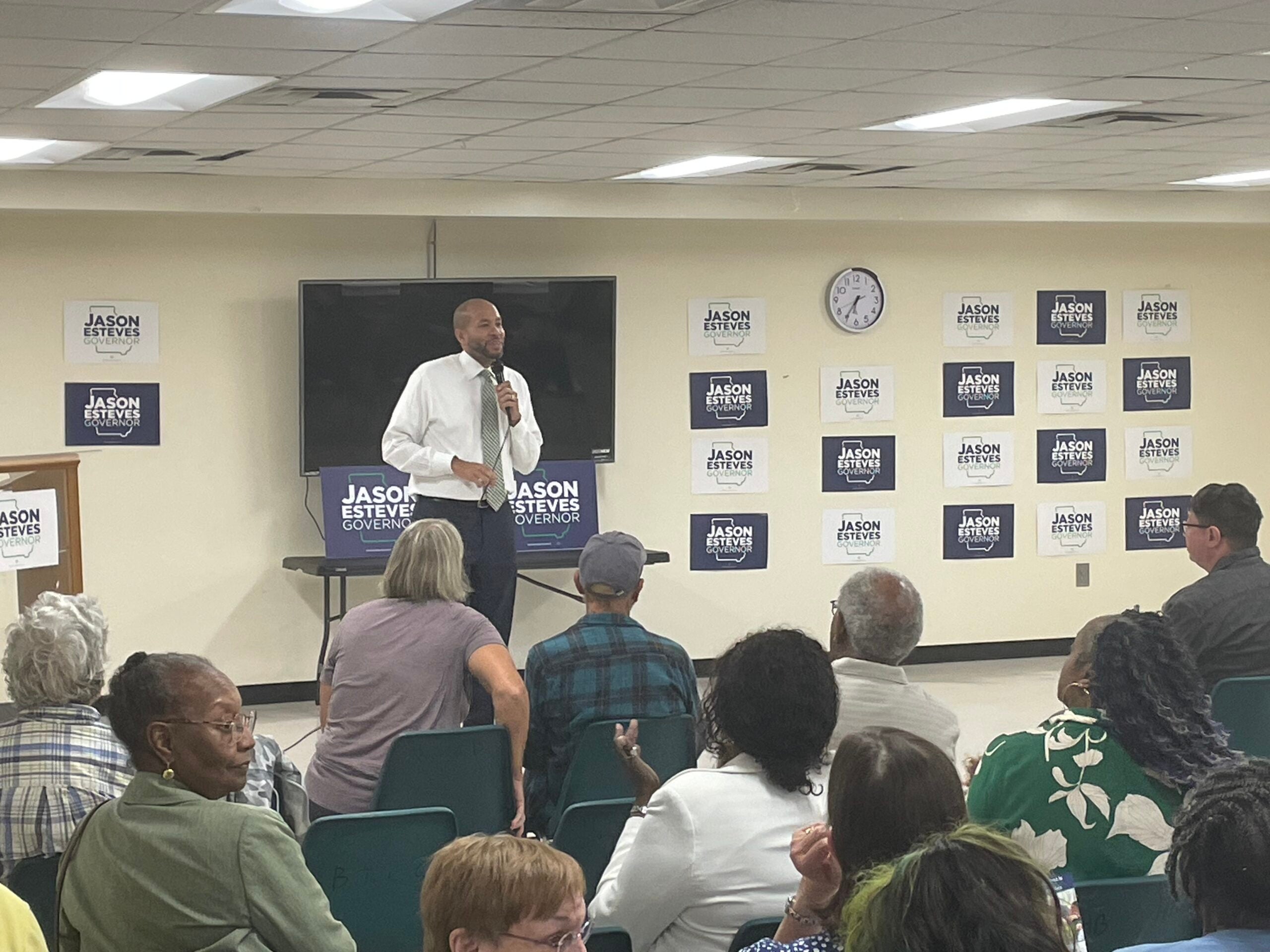Georgia Sen. Jason Esteves of Columbus visited Augusta, Monday night, as part of his gubernatorial campaign tour.
The meet and greet event, hosted by State Sen. Harold Jones, had Esteves engaging a crowd at the Henry Brigham Community Center on Golden Camp Road that included Richmond County School Board member Monique Braswell, Grovetown City Councilmember Ceretta Smith and Commissioners Don Clark, Stacy Pulliam and Jordan Johnson, the latter of whom introduced Esteves.
The Democratic 35th District senator, who was first elected to his seat in 2023, emphasized economic policy in his remarks, outlining a policy agenda that underscored education, healthcare and affordable housing.
“I’m running because what I’ve heard on my trip through Augusta, Ga. is that there are people in this community that feel left behind,” said Esteves. “That they see the progress that Georgia has made, but they’re not feeling it in their pockets, because they have to pay more for housing, they have to pay more for groceries, they have to pay more for healthcare.”
Noting Georgia’s $16 billion surplus and its $2 billion in lottery reserves, Esteves proposed initiatives such as cutting regulation to make building homes cheaper and easier for developers, expanding both Medicaid and access to private health insurance, and establishing a needs-based scholarship for students alongside Georgia’s Hope scholarship.
In the Q&A that followed, Esteves also proposed infrastructure incentives for counties that allow more homebuilding. Responding to a question from a Grovetown resident about cities experiencing too much growth, he said he plans to encourage smart growth in Georgia.
Esteves’ platform also stresses investing in small businesses and growing vocational training programs, which would entail, he said, scaling local efforts to develop robust manufacturing training programs — and industries — throughout Georgia.
“There are a lot of jobs in healthcare where you don’t need a college education, where going to technical school, going through a program, will get you all the all the training that you need to provide care for people in our community,” he said. “I think we need to expand what we’ve seen in Augusta around manufacturing to industries across the state, and it’s those kinds of jobs that are not being threatened by AI that are going to help provide economic opportunity for communities across the state.”
Skyler Q. Andrews is a staff reporter covering business for The Augusta Press. Reach him at skyler@theaugustapress.com.









